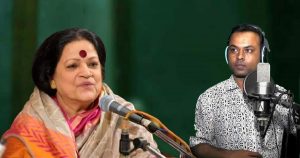Eminent film director and producer Chashi Nazrul Islam died at a city hospital on Sunday morning. An Ekushey Padak and National Film Award winner Chashi Nazrul Islam was 74.
Shahadat Setu, assistant of the noted film maker, said Nazrul, who had been receiving treatment at Labaid Hospital for cancer and various complications since January 1, breathed his last around 5:51 am.
He had been on life support at the hospital since last Friday. Nazrul left behind his wife, two daughters and a host of relatives and well-wishers to mourn his death.Shamsuddin Didar, BNP Chairperson Khaleda Zia’s media wing member, said the renowned filmmaker’s body was taken to his Jasimuddin Road residence in the city’s Kamalapur in the morning.
His body will be kept at the Labaid Hospital mortuary in the afternoon.
Didar said the body will be taken to Bangladesh Film Development Corporation (BFDC) on Monday morning. Afterwards, the veteran film director’s body will be taken to Jatiya Press Club.
His first namaz-e-janaza will be held at Baitul Mokarram Mosque on Monday afternoon. He will be buried in Munshiganj after his second namaz-e-janaza there.
Chashi Nazrul, president of Jatiyatabadi Sangskritik Dal, cultural wing of BNP, was born in Munshiganj on October 23, 1941. He started working on the cultural front by performing on radio in 1965.
The noted cultural personality Chashi Nazrul directed popular radio dramas including ‘Ramer Sumoti’ (1965), ‘Socrates’ (1966), ‘Sokhina Birongona’ (1974).
Chashi started his career in visual media in 1964 when he got chance to work on television programme through audition.
He worked as assistant director of the film, ‘Dui Digonto’, directed by Obaidur Rahman.
Later he worked as assistant of eminent filmmaker late Fateh Lohani. He participated in the Bangladesh Liberation War in 1971.
After the country achieved independence, Chashi Nazrul, also adviser to Jatiyatabadi Samajik Sangskritik Sangstha (Jasas), made his first film ‘Ora Egaro Jon’ (They are eleven) based on the 1971 Liberation War. Subsequently he directed or produced more than a dozen other films and was crowned with the Ekushey Padad and the National Film Award.




